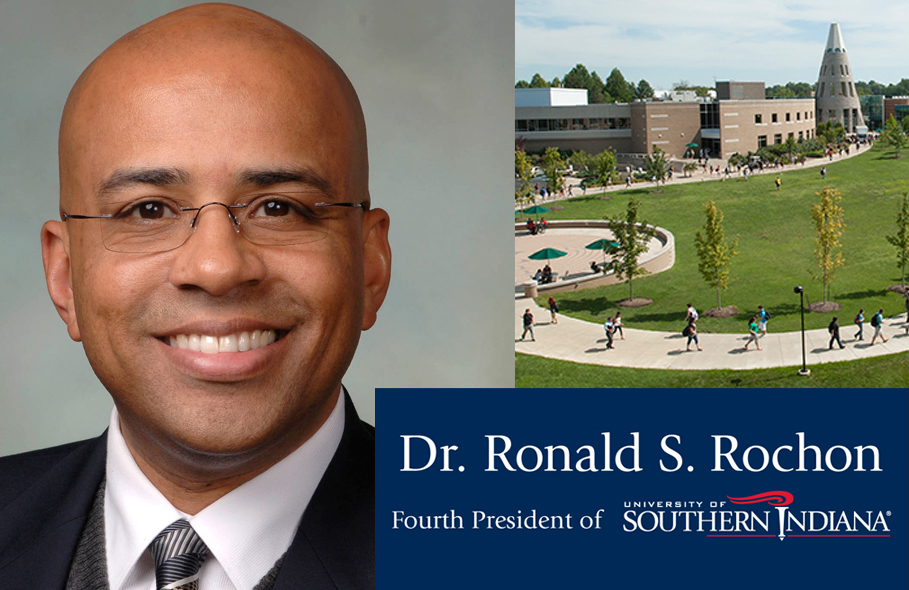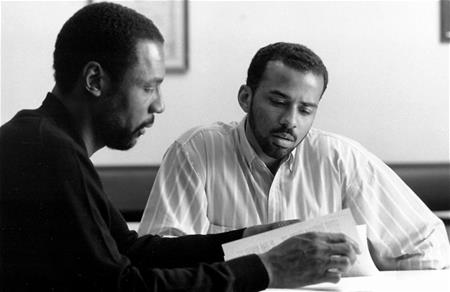Alumnus named next president of University of Southern Indiana
by the College of Education at Illinois / Apr 26, 2018

Dr. Ronald S. Rochon, Ph.D. ’97 EPS, has been named the next president of the University of Southern Indiana (USI). He will begin his tenure as the fourth president of Southern Indiana on July 1.
Harold Calloway, chair of the school’s board of trustees, said Rochon is a “strong leader and true person of character” who will help the university as it works to grow in size and reputation.
Rochon joined USI in 2010 as the school’s provost, directly supervising the deans of four academic colleges and all of its academic departments. He has overseen the overhaul of a seminar course at the school, led the development of a second doctoral program in educational leadership, and has created new opportunities and programs for all students.
In addition, Rochon advanced fresh approaches to student recruitment during his tenure as provost, and created programs to help them succeed. He said he is “honored and humbled” to be named the school’s next president.
“The relationship between our faculty members and our students is crucial to our success, and I am excited to see what the next generation of Screaming Eagle role models will do when they come to campus and experience that relationship for themselves,” he said in a USI news release.
Rochon has served as the inaugural dean of the School of Education and associate vice president for Teacher Education and professor at Buffalo State. He was director and co-founder of the Research Center for Cultural Diversity and Community Renewal at the University of Wisconsin-La Crosse, as well as interim associate dean and director of the school of education.

The future president is also one of many former College of Education students who was mentored by College of Education Dean James D. Anderson. The two scholars still keep in touch today, and Anderson remembers the first conversation they had when Rochon came into his office expressing interest in pursuing a doctorate in education policy.
“I asked about his long-term career aspirations, and without hesitation he said he wanted to be a college president,” Anderson said. “What struck me about his answer is that it was not so much an expression of ambition as it was a devotion to serve. I am extremely proud of his achievement, knowing that thousands of students, faculty, and staff will have a president dedicated to their best interests.”